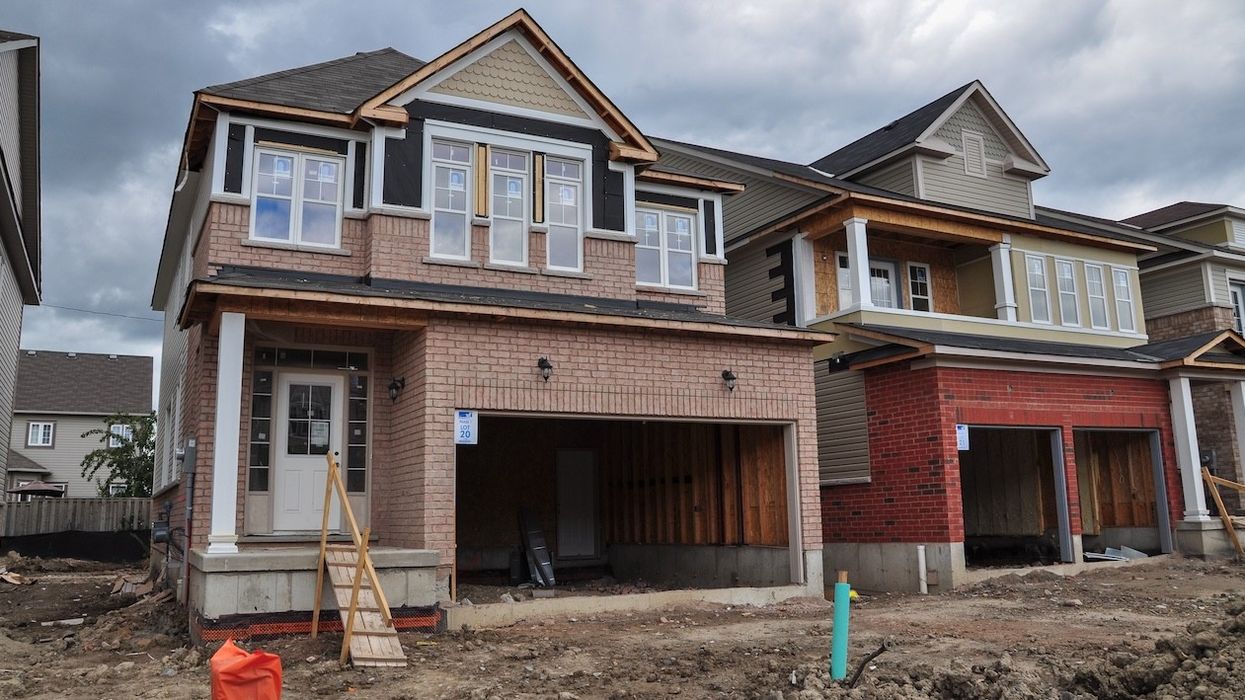At a time when we need more housing, new supply unfortunately is trending in the wrong direction. And, according to most pundits, the situation is going to get worse before it gets better.
There has been a disastrous slowdown of construction of both low- and high-rise buildings.
Most of the condo towers under construction were started a few years back and will be completed in the next couple of years, but there will be a vacuum as there’s little new supply in the pipeline.
Only 10 cities across the country saw a rise in housing starts in 2023, while the majority saw a decline. With record population growth, there just aren’t enough homes being built to keep up.
There are plenty of cranes across our cities, but it doesn’t provide a true picture of the housing situation.
Thirty-six percent of builders anticipate a decline in housing starts in 2024 compared to the previous year, a survey by the Canadian Home Builders’ Association found. In 2023, 64% of home builders reported a reduction in starts due to the prevailing high interest rate environment. Another 30% had to cancel ongoing projects, due to the economic headwinds.
In December, multi-family permit approvals recorded the largest monthly decline on record, with a $1.3B, or 31%, monthly decline. We are underperforming, which is disturbing. It is difficult to turn things around quickly, so the situation will not improve in the short term.
There are many reasons for the dire situation. Interest rate hikes, rising construction and labour costs, hefty taxes, fees, levies, and exorbitant municipal development charges are taking a toll.
A 2024 Canadian Cost Guide released by Altus Group indicates that soaring construction costs appear to have moderated, but the equilibrium may be short lived because rapid population growth and a backlog of large projects will spur more development in Canadian cities. If interest rates come down, it’s expected to spur construction which will drive costs up.
In the Greater Toronto Area, the cost of building a 13- to 39-storey residential tower now ranges from a low of $295 to a high of $380 per square foot, $10 more per square foot than a year ago. The same building in Vancouver runs $350 to $440 per square foot, up from $330 to $400 in 2023.
The problem boils down to simple economics and math. It is too expensive for developers and builders to build, and consumers can’t afford the product.
Recently, at RESCON’s annual general meeting, we heard from market specialists who indicated that housing starts are not where they need to be to achieve housing affordability targets. To achieve housing affordability, prices would need to drop 33%, incomes would need to rise a whopping 55%, or mortgage rates would need to drop 350 basis points.
To make inroads, action must be taken on several fronts and all levels of government must be working in unison on the problem.
Taxes, fees and levies on new housing are the highest in North America and have effectively eliminated first-time homebuyers from the housing market. These fees need to be reduced or eliminated at the municipal level. Transfer payments to municipalities from the federal government also need to be increased to help municipalities keep up with the costs of infrastructure to support housing.
Meanwhile, governments should fully exempt or rebate the collection of the Harmonized Sales Tax on the construction of all residential buildings, including condos, for first-time homebuyers.
Another step would be to reinstate tax policies such as those in place in the 1960s and 1970s that spurred residential construction. Development charges must also be reduced to manageable levels.
The development approvals system also must be improved and streamlined through digitization. A consistent platform needs to be used by all municipalities as many of the systems used by different jurisdictions are too slow and fragmented which results in delays in approvals. In Ontario, RESCON has suggested that the One Ontario platform be funded across the province.
Upgrading and digitizing systems to reflect modern business practices would help move approvals through the process faster, resulting in lower costs and shovels going in the ground sooner.
We are lagging behind just about every other jurisdiction in the world when it comes to innovation, timelines for approvals to undertake construction projects, and construction permitting, so it is critical that we take action immediately if we are to meet targeted goals for new housing.
The situation appears grim. I cannot underestimate the gravity of the crisis. However, builders are committed to meeting the challenges that are facing us. I remain hopeful the tide can be turned.





















